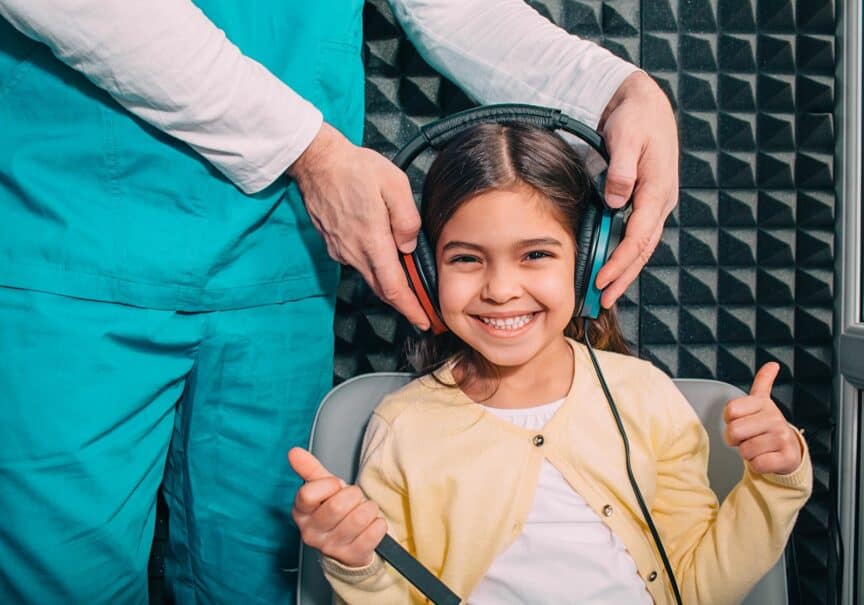Did you know that March 3rd is World Hearing Day? The World Health Organization (WHO) organizes this global campaign to increase awareness about hearing loss which is one of the most common health issues people live with today. Though it is pervasive, hearing loss still remains widely undertreated. In fact, only a third of people who could benefit from treatment actually receive it, highlighting widespread inaction when it comes to hearing loss.
The theme for this year’s World Hearing Day is Ear and Hearing Care for All which emphasizes accessing the hearing healthcare services and solutions that are available to support your hearing health and wellness. This March is the perfect time to prioritize your hearing health by scheduling an appointment for a hearing test!
How do I know if I have hearing loss?
With nearly 1 in 5 people having some degree of hearing loss, you or someone you know is likely impacted by it. To identify if you are indeed experiencing hearing loss, it may be helpful to ask yourself the following questions:
- Do I struggle to keep up with conversations? Especially in places with background noise like restaurants?
- Am I lip reading to help identify individual words because I have trouble distinguishing words?
- Is there a ringing or buzzing noise in my ears that only I can hear?
- Do I frequently ask others to repeat something they’ve said or to speak louder?
- Am I responding with “huh” or “what”?
- Do I have to turn up the volume on the TV or my phone?
- Am I pretending to hear just to get through conversations?
- Am I too embarrassed to share my hearing challenges with anyone?
If the answer is yes to any of these questions, this may indicate that you are navigating hearing loss symptoms.
How is hearing loss treated?
Forutanely, there are effective ways that hearing loss is treated that transform hearing health. Hearing aids are the most common treatment and these devices are savvier than ever. Today’s hearing aids have benefited tremendously from innovations in technology. There is an array of options with different features, technologies, colors, styles etc. that are designed to seamlessly integrate the device into everyday life while supporting hearing in all environments. With so many to choose from, navigating your options can be overwhelming but that is why your hearing healthcare provider is there! They will recommend devices that can best meet your hearing needs and lifestyle preferences.
What type of hearing aid would be best for me?
The type of hearing aid that is optimal for you depends on a few factors. Your hearing healthcare provider will take into consideration important pieces of information. This includes:
- The type of hearing loss you have and the degree of impairment you are experiencing in each ear.
- Lifestyle factors that involve the types of environments you regularly move through – work environments, social life, hobbies, exercise patterns etc. This helps identify what your hearing aids need to be able to do in these specific environments to best meet your hearing needs.
- Your interest in different features and technologies like digital noise reduction, voice recognition, wireless connectivity, tinnitus management etc.
Your hearing healthcare provider will use this information to help you navigate your options, ensuring that you choose a device that is best for you and your hearing health.
Prioritize Your Hearing Health This March
World Hearing Day is the perfect time to commit to your hearing health and wellness. You can do this with one simple step: scheduling an appointment for a hearing test. Hearing tests are used by a hearing healthcare specialist to diagnose hearing loss. Hearing evaluations involve a noninvasive and painless process that measures hearing capacities in both ears. This identifies any hearing loss and the degree of impairment you are experiencing in each ear. Once your hearing needs are established, treatment can be tailored to meet your needs.
Treating hearing loss offers life-changing benefits. Not only do hearing aids improve hearing but also strengthen communication – an essential way we navigate everyday life. This improves relationships, social engagement, work performance, and overall health. Treating hearing loss allows people to live fully and actively. Contact us today to schedule an appointment for a hearing consultation!

